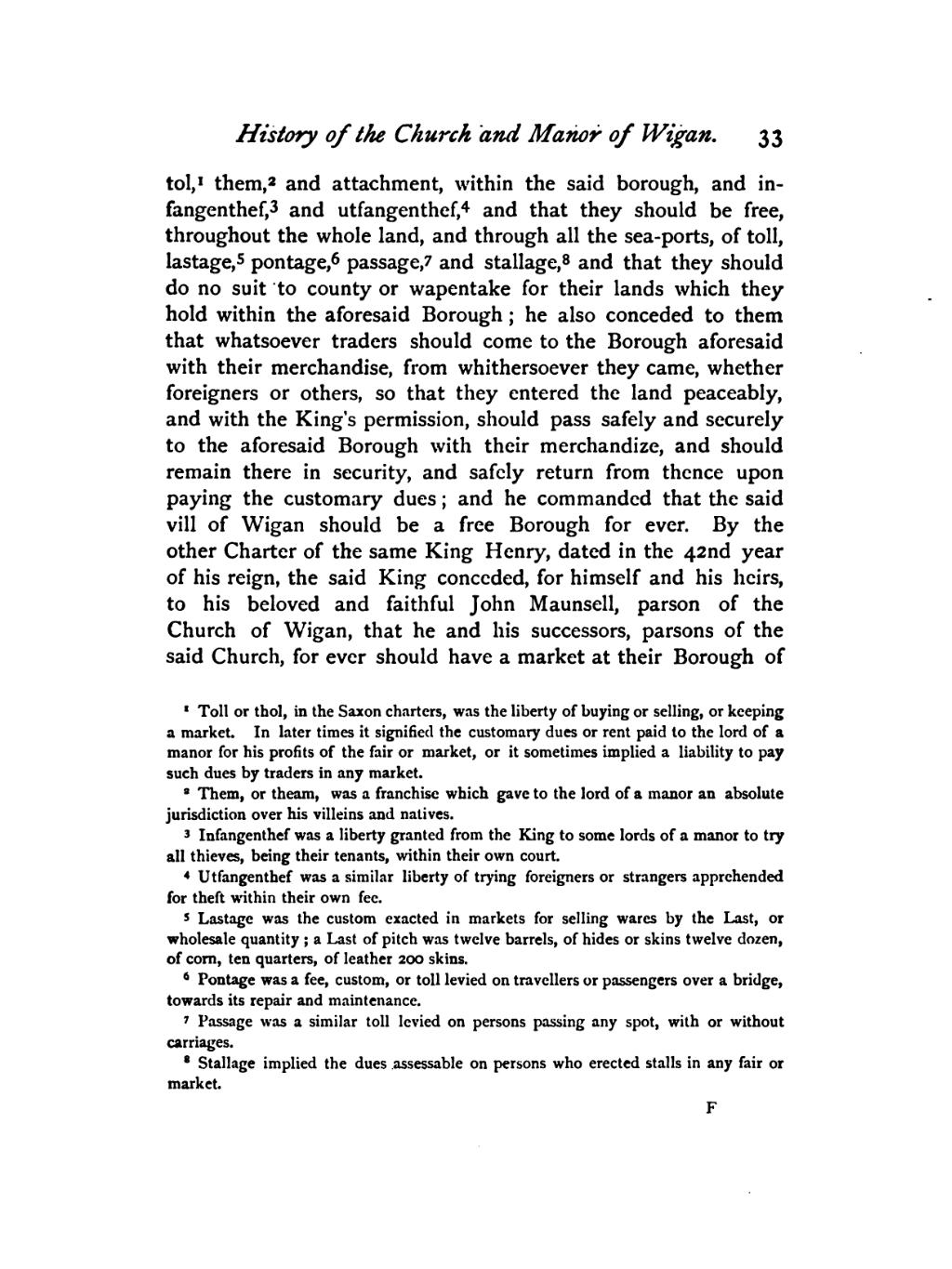tol,[1] them,[2] and attachment, within the said borough, and infangenthef,[3] and utfangenthef,[4] and that they should be free, throughout the whole land, and through all the sea-ports, of toll, lastage,[5] pontage,[6] passage,[7] and stallage,[8] and that they should do no suit to county or wapentake for their lands which they hold within the aforesaid Borough; he also conceded to them that whatsoever traders should come to the Borough aforesaid with their merchandise, from whithersoever they came, whether foreigners or others, so that they entered the land peaceably, and with the King's permission, should pass safely and securely to the aforesaid Borough with their merchandize, and should remain there in security, and safely return from thence upon paying the customary dues; and he commanded that the said vill of Wigan should be a free Borough for ever. By the other Charter of the same King Henry, dated in the 42nd year of his reign, the said King conceded, for himself and his heirs, to his beloved and faithful John Maunsell, parson of the Church of Wigan, that he and his successors, parsons of the said Church, for ever should have a market at their Borough of
- ↑ Toll or thol, in the Saxon charters, was the liberty of buying or selling, or keeping a market. In later times it signified the customary dues or rent paid to the lord of a manor for his profits of the fair or market, or it sometimes implied a liability to pay such dues by traders in any market.
- ↑ Them, or theam, was a franchise which gave to the lord of a manor an absolute jurisdiction over his villeins and natives.
- ↑ Infangenthef was a liberty granted from the King to some lords of a manor to try all thieves, being their tenants, within their own court.
- ↑ Utfangenthef was a similar liberty of trying foreigners or strangers apprehended for theft within their own fee.
- ↑ Lastage was the custom exacted in markets for selling wares by the Last, or wholesale quantity; a Last of pitch was twelve barrels, of hides or skins twelve dozen, of corn, ten quarters, of leather 200 skins.
- ↑ Pontage was a fee, custom, or toll levied on travellers or passengers over a bridge, towards its repair and maintenance.
- ↑ Passage was a similar toll levied on persons passing any spot, with or without carriages.
- ↑ Stallage implied the dues assessable on persons who erected stalls in any fair or market.
